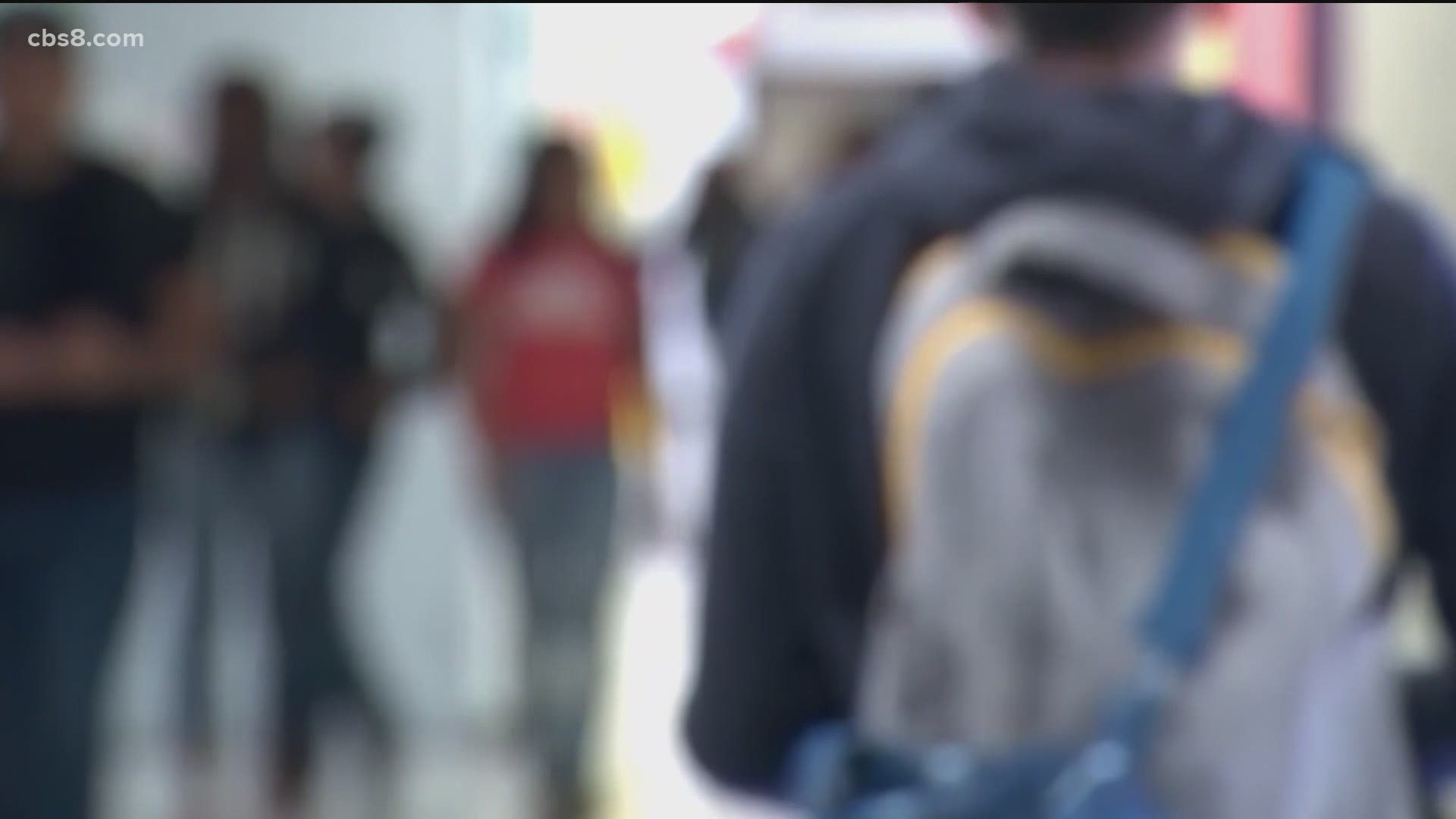CALIFORNIA, USA — When it comes to what's being taught in schools as it relates to race, critical race theory, or CRT, has become a hotly debated issue.
You've probably heard the term either on the news, or social media.
Some states are trying to ban critical race theory, and there's often disagreement about what it is.
News 8 interviewed Dr. Andrew Jolivette, author and chair of the Ethnic Studies department at UC San Diego.
We asked Jolivette, what is critical race theory?
"It's a concept that academic scholars have used to try to understand the structure of racism, so how racism actually functions in society," said Jolivette.
CRT is based on the premise that racism is socially constructed and that laws designed to protect against racism sometimes maintain it instead.
For example, when legalized slavery ended, discrimination against Black people legally continued through Jim Crow racial segregation laws.
The theory also looks at housing discrimination, like single-family zoning that prevents building affordable housing in certain advantaged neighborhoods, therefor halting desegregation efforts, as well as discrimination in the workplace, like not wanting to interview someone simply based on their name.
"They've actually done studies. People that have names that appear to be African-American or other names that those folks were not called back for interviews for jobs. Things that are embedded in the law, but also what are some of the social ways they're embedded into policy, behavior or even practice that might continue to discriminate against people," said Jolivette.
Jolivette says critical race theory originated in the mid-1970s in the writings of several American legal scholars in response to what they viewed as a lack of racial progress.
"Early theorists who were studying issues of race and racism were actually trying to understand how did something like Brown versus Board of Education happen that was supposed to address inequality yet we saw inequality persist even after that," said Jolivette.
Is critical race theory controversial?
Very.
We reached out to both supporters and opponents.
Frank Xu is president of the Californians for Equal Rights Foundation.
The group is against allowing schools to teach critical race theory.
"The idea they're teaching is to examine everything through the lens of race and that is very worrisome," said Xu.
Xu, a Chinese immigrant, says while he acknowledges racial disparities, he believes CRT is a political theory that will divide people, not unite, especially in schools.
"So one consequence for the students who don't agree with this ideology, they will be afraid to speak up because based on this ideology, they are racist," said Xu.
Californians for Equal Rights Foundation recently filed a civil rights complaint against the county's largest school district, San Diego Unified, claiming the district's anti-bias, anti-racist teacher training is based on controversial and politicized ideas, using terms like whiteness, white privilege and anti-racism.
In a statement, a district spokesperson tells News 8,
"Critical race theory is not being taught at San Diego Unified. Regarding the civil rights complaint, San Diego Unified has no comment."
Meanwhile, supporters of critical race theory argue it's needed now more than ever.
Enrique Morones is executive director of Gente Unida.
"There's good and bad. There's good and bad but it's important for people to know it because if you don't know your history, you are bound to repeat it," said Morones.
Morones said CRT will help create a more tolerant society.
"We want people to know. We want people to know the truth so they can understand why people are in certain situations, why people are vocal of injustices," said Morones .
Is California among the states wanting to ban critical race theory?
No.
According to Education Week, as of June 18, 25 states have introduced bills or taken other steps that would restrict teaching critical race theory or limit how teachers can discuss racism and sexism.
Eight states have enacted these bans, either through legislation or other avenues.
WATCH RELATED: Battle over critical race theory heats up

